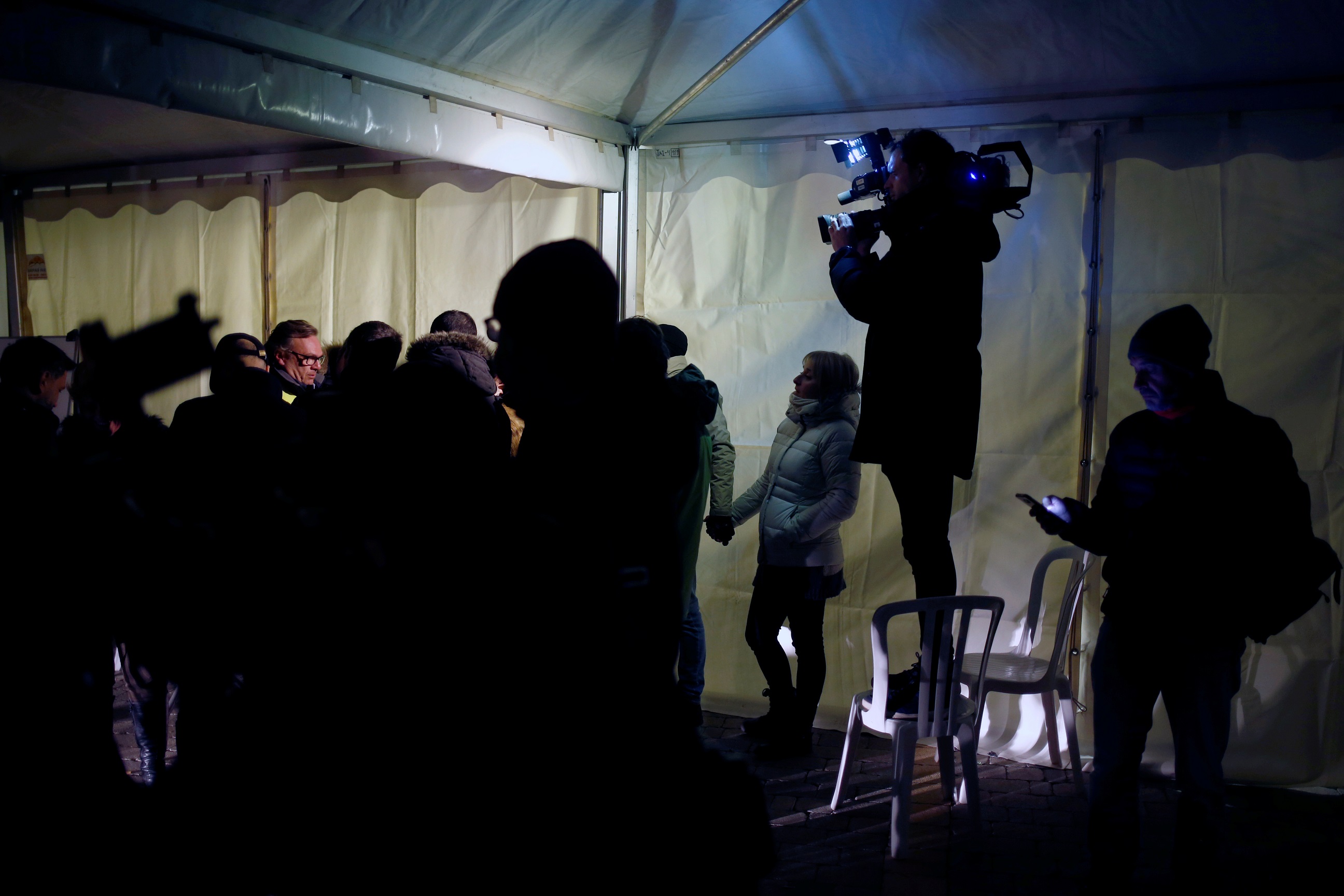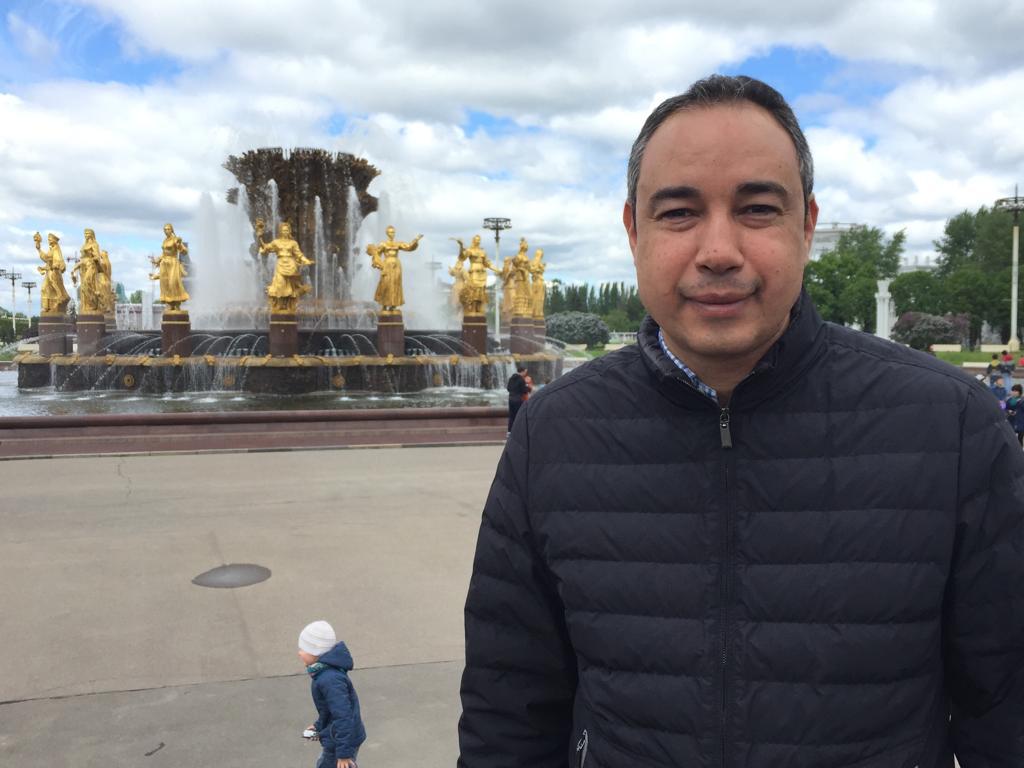يمكن تعريف مفهوم الانتقال الديموقراطي بأنه مسلسل تغيير سياسي لنظام سلطوي نحو الديموقراطية. وتميز الربع الأخير من القرن العشرين بجملة من التحولات العميقة في بنية بعض الأنظمة السياسية جنوبي المتوسط مثلما هو الحال في البرتغال وإسبانيا واليونان حيث ساهم الإعلام بنسب متفاوتة في دعم هذا المسلسل والترويج لقيم الديموقراطية.
وتمثل الحالة الإسبانية نموذجا متفردا وجديرا بالدراسة لما توفره من أدوات ومداخل لفهم الدور الذي اضطلعت به الصحافة في نشر المعلومة وإشاعة الوعي في بيئة سياسية هشة تتصارع فيها القوى الممانعة للتغيير ممثلة في المؤسسة العسكرية والكنيسة لوأد المشروع الديموقراطي.
تجمع معظم الدراسات على أن فترة الانتقال الديموقراطي بدأت من منظور سياسي ومؤسساتي صرف بعد وفاة الجنرال فرانثيسكو فرانكو في تشرين الثاني/نوفمبر 1975 وانتهت في كانون الأول/ ديسمبر 1978 وهو التاريخ الذي دخل فيه الدستور الجديد حيز التنفيذ.
وشهدت إسبانيا على مدى هذه السنوات الثلاث عملية تفكيك تدريجي للمؤسسات التي أفرزتها الحقبة الديكتاتورية وأبرز محطاتها قانون الإصلاح السياسي الذي تم بمقتضاه حل البرلمان والدعوة إلى أول انتخابات حرة في حزيران/يونيو 1977.
وبالتوازي مع التحولات العميقة التي شهدها المسار السياسي، شهد الحقل الإعلامي الذي يؤطره قانون النشر والطباعة لعام 1966 طفرة هائلة باتساع هامش الحرية على نحو غير مسبوق بعدما تخلصت وسائل الإعلام من سيف الرقابة ولم يعد دورها مختزلا في تمجيد الحاكم والدعاية لسياساته.
وكرس الدستور الجديد هذا التوجه بجعل الحق في المعلومة حقا من الحقوق الأساسية ومن خلال إقراره الصريح بأنه "يحق لكل مواطن إسباني أن يتلقى أو يكون مصدر معلومات موثوقة في وكل وسائل الإعلام ".
وفي إطار تحرير قطاع الصحافة والإعلام، ألغيت وزارة الإعلام وسن قانون بموجبه انتهت حزمة من التدابير الزجرية المنصوص عليها في قانون الصحافة وبينها إغلاق الصحف.
وأضفت هذه الأجواء غير المسبوقة من الحرية ظهور عناوين ومطبوعات جديدة بلغت في عام 1984 نحو 115 صحيفة كان لبعضها دور بارز في هذ المرحلة السياسية الحاسمة وفي مقدمتها صحيفتا
El PAIS, ELPERIODICO DE CATALUNYA وتحولت المنابر الإعلامية إلى ساحة لنقاش سياسي استوعبت أصواتا لم يكن مسوح لها بالتعبير عن مواقفها خلال حقبة الديكتاتورية كالقوميين واليساريين، فصارت الصحف، وفق توصيف ورد في دراسة قيمة للباحث ألبارو دي دييغو غونثاليث "برلمانا ورقيا" تدافع فيه كل التعبيرات السياسية على اختلاف أطيافها عن تصوراتها وطروحاتها الفكرية والإيديولوجية بحرية مطلقة.
ويشير الكاتب كارلوس باريرا في هذا المنحى إلى أن دمقرطة الحياة السياسية ومؤسساتها ترتب عنها تخلص وسائل الإعلام من وصاية الدولة وظهور مقاولات إعلامية لم يكن لها وجود قبل حقبة الثمانينيات.
كما أن الساسة استثمروا هذا الزخم فجعلوا من وسائل الإعلام أداتهم الأثيرة للترويج لبرامجهم ومشاريعهم السياسية.
وفي خضم المنعطف الحاسم وتعاظم دور الإعلام في مصاحبة مسلسل الانتقال الديموقراطي، لعبت الإذاعة دورا بارزا في المساهمة في النقاش العمومي إذ انتقل عدد المستمعين من 7 ملايين في عام 1975 إلى نحو 17 مليونا سنة 1982.
وانخرط التلفزيون بدوره في حمأة هذا النقاش، وسارع إلى تطوير محتواه الإخباري، فتحول إلى أداة مؤثرة في عملية الإصلاح الديموقراطي الذي باشرته حكومة أدولفو سواريث المنبثقة عن أول انتخابات حرة في إسبانيا.
ومن خلال تحليل المحتوى الإعلامي لتلك الفترة، كما وكيفا، وتبيان طبيعة العلاقة بين الصحافة وبقية الفاعلين السياسيين، يمكن القول إن الصحافة ساهمت إلى حد بعيد في تجذير القيم والمبادئ الديموقراطية وبالتالي في نجاح مسلسل الانتقال الديموقراطي.
وجاء في ورقة بحثية أعدها ريكاردو ثوغاستي تحت عنوان "دور الصحافة في بناء الديموقراطية: من موت فرانكو إلى دستور 1978" أن حصة الأخبار المتعلقة بأحزاب المعارضة والنقابات والنزاعات الاجتماعية سجلت ارتفاعا ملحوظا في الصحف في مقابل تراجع واضح للأخبار ذات الصبغة الرسمية بينما نزعت صفة القداسة عن المؤسسة الملكية وبات رئيس الحكومة عرضة للانتقاد.
أما على مستوى المفاهيم فقد ساهمت الصحافة الإسبانية في ترسيخ المبادئ والقيم الديموقراطية من خلال ملامستها المستمرة لقضايا تتصل بالحريات العمومية ومفهوم الحكم الذاتي والوفاق الوطني.
وشكل النقاش العمومي المتواصل حول مفهوم الديموقراطية في وسائل الإعلام قطب الرحى في المسار الذي اعتبر أن الوفاق الوطني شرط لا محيد عنه لبناء الدولة الديموقراطية.
وخلصت الدراسة إلى أنه رغم الاختلافات الإيديولوجية والسلوك السياسي لمختلف المنابر الإعلامية في مرحلة الانتقال الديموقراطي إلا أن التركيز انصب بطريقة واعية على البحث عن نقاط التلاقي أسوة بالمسار الذي سلكته الأحزاب السياسية بما سمح بترويج خطاب إعلامي معتدل وعقلاني بعيدا عن غوغائية الديماغوجيا.
وإذ صارت بعض المنابر حديثة النشأة هدفا للعمليات العسكرية لمنظمة "إيتا" الباسكية الداعية للانفصال، إلا أن وحدة صف الجسم الصحفي والتفافه الواسع حول مفهوم الحرية، أبان عن إيمان راسخ للصحافة بالمسلسل الديموقراطي، وهو الموقف نفسه الذي تبنته الصحافة من محاولة الانقلاب الفاشلة التي قادها العسكر في فبراير عام 1981.
وعلى مستوى آخر، كان لافتا أن الصحافة الإسبانية لم تتحاش الخوض في القضايا الخلافية، التي ما زال بعضها موضوع اختلافات سياسية عميقة لحد الآن، سيما ما يرتبط بإرث حقبة الجنرال فرانكو والحرب الأهلية التي خلفت ندوبا عميقة في الذاكرة الجمعية لإسبانيا.
ولم توظف هذه القضايا الخلافية كأداة للمواجهة في الصراع السياسي القائم، بل تم التعامل معها من منطلق أنها مدخل أساسي للمصالحة بين الإسبان فيما يبدو محاكاة واعية لنفس النهج الذي اتبعته الأحزاب في تعاطيها مع هذه الصفحة الأليمة من تاريخ إسبانيا المعاصر باختبارها النسيان بدل النبش في الذاكرة الموشومة وذلك من خلال إقرار قانون العفو في يوليو تموز 1976 الذي سمح بإعادة إدماج المعتقلين السياسيين والعسكريين ممن لم تلطخ أيديهم بدماء بني وطنهم.








































